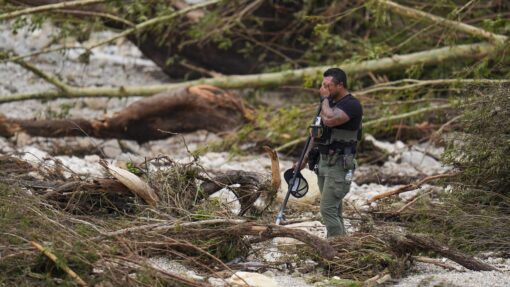Blocked goldminer ‘shattered’ by rising sovereign risk
Marion Rae |

Gold producer Regis Resources says a federal protection order blocking a NSW project on heritage grounds will significantly impact the community as well as hitting the company.
Chief executive Jim Beyer said he was “shattered” by the surprise ruling on the project and dismissed comparisons with Rio Tinto’s past destruction of ancient rock shelters in Juukan Gorge.
“We continue to assess all legal options available to respond to this decision,” he told an investor webcast on Thursday.
“It is quite stressful for a lot of people,” he said, citing widespread support for the mine from locals and businesses.
The $1 billion gold project in NSW scuppered by Environment Minister Tanya Plibersek would kill off 580 jobs in the construction phase and 280 full-time jobs, Mr Beyer said.

The spectre of “sovereign risk” also made Regis more wary of trying to grow in Australia because local investment in some areas had a similar risk profile to possible acquisitions overseas, he said.
The immediate price tag of the decision on the McPhillamys Gold Project site in the NSW central west was $192 million, as 1.89 million ounces of reserves had been blasted into zero, he said.
Ms Plibersek said this week the Wiradjuri traditional owners asked her to protect the headwaters and the springs of the Belubula River, which have had significance for them for thousands of years.
“It’s associated with the time that young people move to adulthood and a number of the creation stories of the Wiradjuri people,” she said.
“In 2020, when Juukan Gorge was destroyed, we said as a nation that we shouldn’t allow the destruction of Aboriginal cultural heritage in this way ever again.
“Crucially, I have not said that the gold mine can’t go ahead. I said the tailings dam can’t be built on the headwaters and springs of the river.”
Mr Beyer rejected the argument that the dam on the headwaters of the river to store mine waste would cause damage.
“The bigger concern is that it is after years of work, testing, surveying for heritage, drilling, investigations, expert advice, state and federal approvals and spending hundreds of millions of dollars, a decision can be made, overturned,” Mr Beyer said.
“If there’s one thing the country needs, it’s consistency.”
Some $50 million in landholdings were not written off, but Mr Beyer said the company was still trying to understand the impact of the decision on their value.
Shares in Regis fell 0.7 per cent to $1.72 after the miner on Thursday reported a net loss of $186 million for the 2023/24 financial year, sliding further into the red after a $24.3 million loss booked in the previous year.
Regis said it was “more than a one-mine company” with ongoing cashflow from other operations.
Underlying earnings totalled $421 million in the 12 months ended June 30, up from $402 million in 2022/23.
Cash flow from operating activities reached a record $457 million while gold sales totalled $1.3 billion, up from $1.1 billion.
Regis said the section 10 protection order made by the federal government rendered the project “unviable” in its current form.
The action by Ms Plibersek came despite the NSW Independent Planning Commission in 2023 approving the company’s mining application, which was opposed by some in the local Aboriginal community.
NSW Natural Resources Minister Courtney Houssos said this week the mine was strategically important to the state.
“Protecting heritage and progressing key mining projects should not be a zero-sum proposition,” she said.
13YARN 13 92 76
Lifeline 13 11 14
AAP


